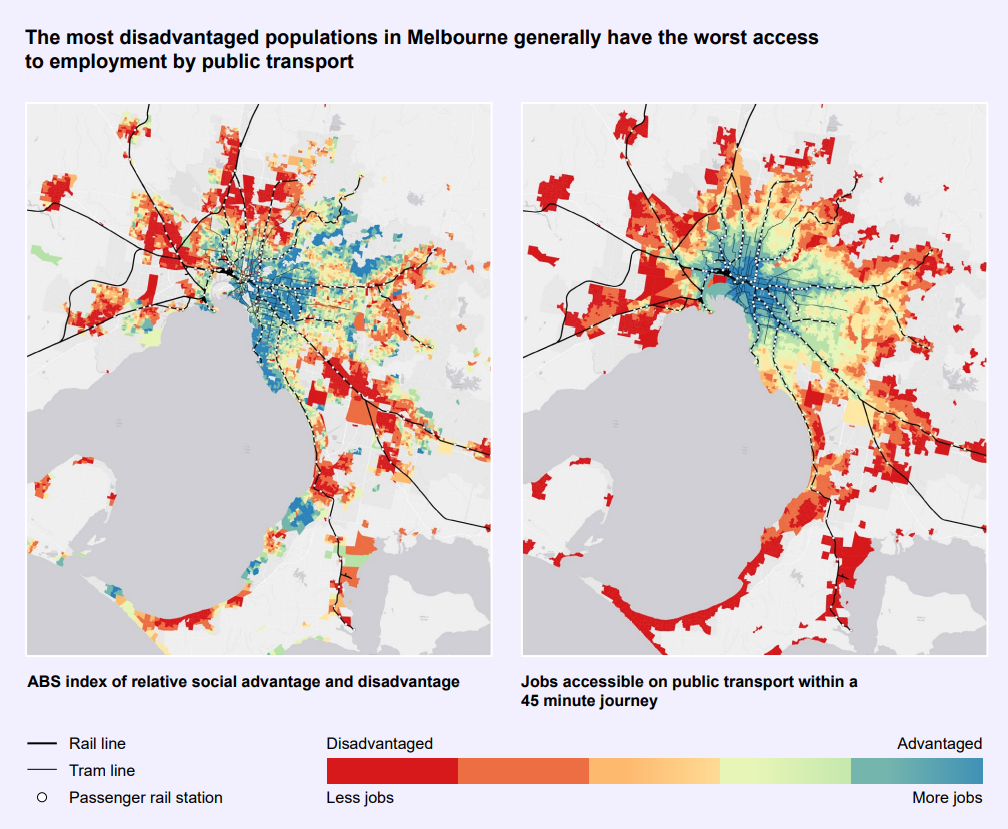Course Correction: Reforming Melbourne’s buses
The Committee for Frankston & Mornington Peninsula is pleased to share the Committee for Melbourne's report on reforming Melbourne's buses.
This report offers some key insights and observations that reflect our Committee's key advocacy goals and strategic objectives for public transport in our region.
The Peninsula's transport network is significantly underdeveloped, with over 80% of the region not serviced by it at all. Public transport options are few, infrequent, and distant from people’s homes, and just 3% of residents use public transport within the Shire - compared to 15% across Port Phillip Bay in City of Greater Geelong.
Of particular relevance to the Mornington Peninsula is the relationship between social inequity and the ability to access public transport. This is something the Committee for Mornington Peninsula highlighted in our Economic Disadvantage Report available here.
From the Committee for Melbourne's report:
There is a noticeable difference in access to public transport for residents of Melbourne based on where they live and work. While inner areas of the city are better served by the tram and radial train network, the outer suburbs are primarily serviced by a bus system that does not adequately meet the needs of its residents.
This unequal access to public transport in the middle and outer suburbs limits peoples’ mobility and freedom, especially the large number of people who rely on public transport as their primary mode of travel. Many individuals and families encounter challenges in reaching essential services, education, job opportunities, healthcare facilities and the cultural and sporting life of the city.
As shown in Figure 2, the availability of public transport for accessing employment decreases as one moves away from inner Melbourne. In the middle and outer areas, job opportunities are relatively scarce, resulting in longer commuting distances for individuals seeking work and a higher reliance on car ownership.
This trend is expected to continue, with analysis by Infrastructure Victoria revealing that population growth in new growth areas will far outstrip employment opportunities by 2051, exacerbating the problem of inadequate and unequal connectivity across Melbourne.

Source: Committee for Melbourne - 'Course Correction: Reforming
Melbourne's Buses - August 2023'
Read the original post from Committee for Melbourne here.
Read the Committee for Melbourne Media Release here.
Read the Report here.
